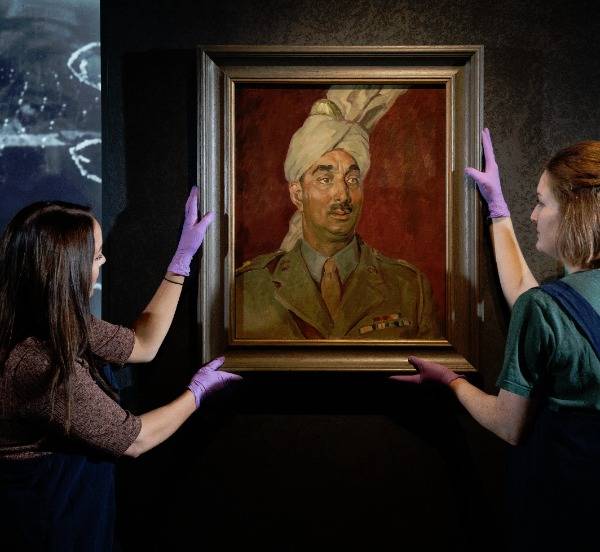
In my favourite scene from their animated film Yellow Submarine, the cartoon Beatles see a submarine, identical to theirs, going in the opposite direction. “There’s someone in it. Look!” one remarks. “And they’re waving,” says another, “It’s a group of fellas.” They wave back, realising that it’s themselves, going backwards in time.
I’ve thought often about how strange it must feel, being Paul McCartney or Ringo Starr, seeing their years as the Beatles – one phase of their long lives – take on a perpetual existence. And, quite unexpectedly, I’ve found myself contributing to that spinning media whirl.
In late March, I learned of the existence of an almost complete concert recording of the band made by a 15-year-old student at Stowe boarding school. A few days later, I broadcast the news on my BBC Radio programme Front Row. I had gone to Stowe with the former student, John Bloomfield, to make a special programme about the 60th anniversary of the concert. I had no idea about the tape until Bloomfield, now 75, revealed its existence to me. Listening to the concert transported me back to 4 April 1963, a particular moment in time when a group of privately educated boys saw the future in their encounter with a quartet of working-class boys from Liverpool.
Bloomfield had clearly decided now was the time to uncover the “lost tape”, and I was touched by his trust in me. I alerted Beatles historian Mark Lewisohn and arranged for us to listen to it in full together. Lewisohn told me the tape was genuinely important, for capturing the band in full, at a unique moment and before their gigs became entirely blanketed in screams.
Certainly, when Bloomfield played some of the recorded songs from the original school theatre stage, through the modern speakers, I experienced something akin to a transformative moment: a realisation of how mind-blowing the juddering, bone-shaking intensity of their live performance must have been.
As time transports us further away from the ’60s and the Beatles, there is a sense of a growing reverence. Little snippets of film footage or old photographs emerge regularly like religious relics to be gawped at in the news and, as in medieval times, bought up by rich collectors for their private reliquaries. I had no intention of contributing to this trend. My story was really about the social history of that moment – the unique collision of class and culture that took place during that concert, with its almost entirely male audience.
There is a massive mythology that has built up around such moments in the Beatles’ career, but I think there’s a lovely secular power in the fact that the gig has been captured on tape.
We have the vision of a sixth-former to thank, who had seen the band perform in the Cavern nightclub and approached the manager. This bold student, Dave Moores (who would go on to become the chairman of Liverpool FC), organised the concert himself, selling tickets at 5 shillings to cover the £100 fee, without involving any schoolmasters. Bloomfield was stage manager and decided to run a tape with a microphone at the front of the stage.
There is no denying the intense religious devotion that the band evoke in some fans. Within hours of breaking the story I had messages from several countries, some polite, but most with an edge of urgency, desperately keen to know what was on the set list.
One astute reader queried anxiously about whether a photograph of the band at Stowe that night, used to illustrate a newspaper story about my find, had been flipped or mirrored – they were concerned that Paul and Ringo were holding pens in their wrong hands (Paul and Ringo are left-handed, although Ringo might have signed with his right).
New threads to the story have emerged since then, through the people contacting me. One of the very few girls at the gig, a daughter of the couple who ran the tuck shop, got in touch on hearing my report. I connected her to Bloomfield, a boy she’d not spoken to for 60 years.
In Yellow Submarine, the old sea captain warns the band, “If we slip back through time at this rate, very soon we’ll all disappear up our own existence.” But there is nothing introspective about this story. I was delighted to hear that Bloomfield plans to donate the tape to a public cultural institution. Far from adding to a private reliquary, it looks like the Stowe tape will continue to open up joyful stories for the future.
This piece is from the New Humanist summer 2023 edition. Subscribe here.

